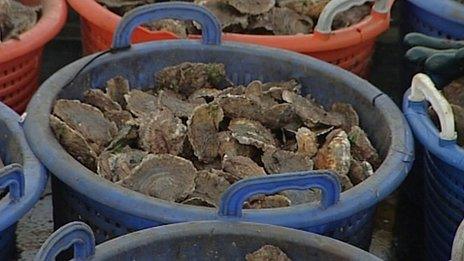Baby oyster found in bid to boost Solent stocks
- Published
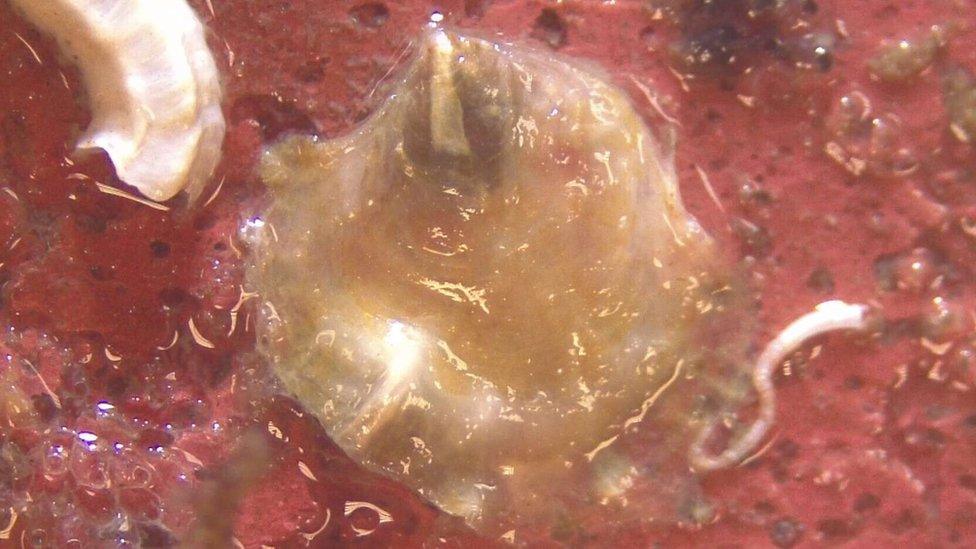
The baby oyster was found on a roofing tile, which was suspended close to the surface of the water
The first baby oyster has been discovered a year after thousands of adult molluscs were reintroduced to the Solent in a bid to revive stocks.
Oyster fishing was banned in 2013 when annual harvests plummeted from 200 to 20 tonnes in five years.
About 10,000 oysters were transferred to cages at six sites in April by project organiser Blue Marine Foundation.
A 5mm (0.2 inch) spat has now been found off Portsmouth.
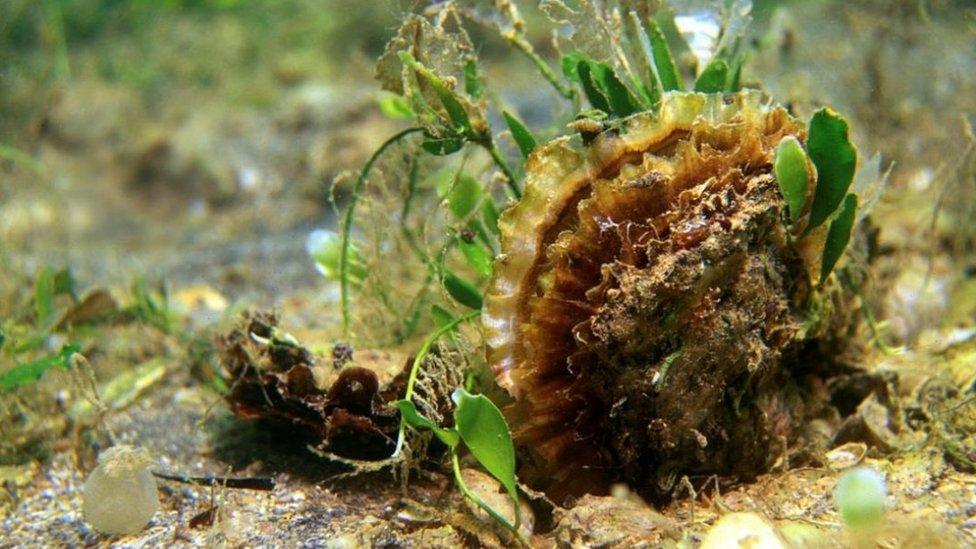
Blue Marine Foundation is leading the project to restore the native oyster population in the Solent
The oysters started to reproduce in July.
A further 10,000 were moved to the cages in November, with 3,500 of the spawning molluscs later transferred to the seabed.
Luke Helmer, a PhD research student at the University of Portsmouth, which is one of the main project partners, made the spat discovery.
"We were hoping to get some settlement but to have it confirmed is an amazing step forward for the project," he said.
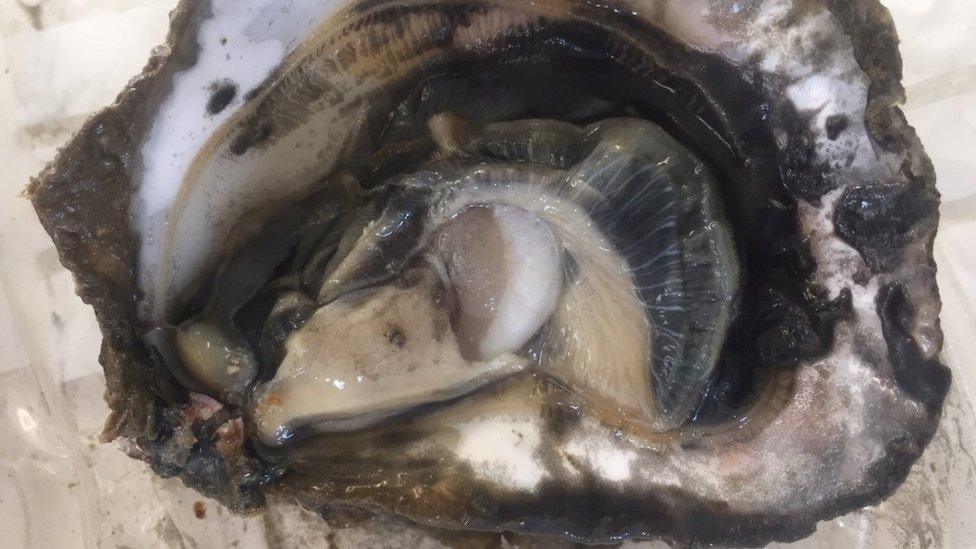
The oysters have already started to produce larvae - the black seen here on the mollusc - in July last year
The baby oyster was found on a roofing tile, which was suspended close to the surface of the water, near the cage at Land Rover Ben Ainslie Racing (BAR) headquarters, as part of a trial.
"Oysters like to settle on rough hard surfaces, so we chose tiles with a particularly rough surface and placed them in the water when the mature oysters started to produce larvae," Mr Helmer added.
Morven Robertson, of Blue Marine Foundation, said: "It gives us really good hope that the areas we are preparing, including the restoration of the seabed, are probably going to work.
"We will now be having as closer look on the seabed to see if there are more around."
A final report on the project is expected in 2021.
- Published14 November 2017
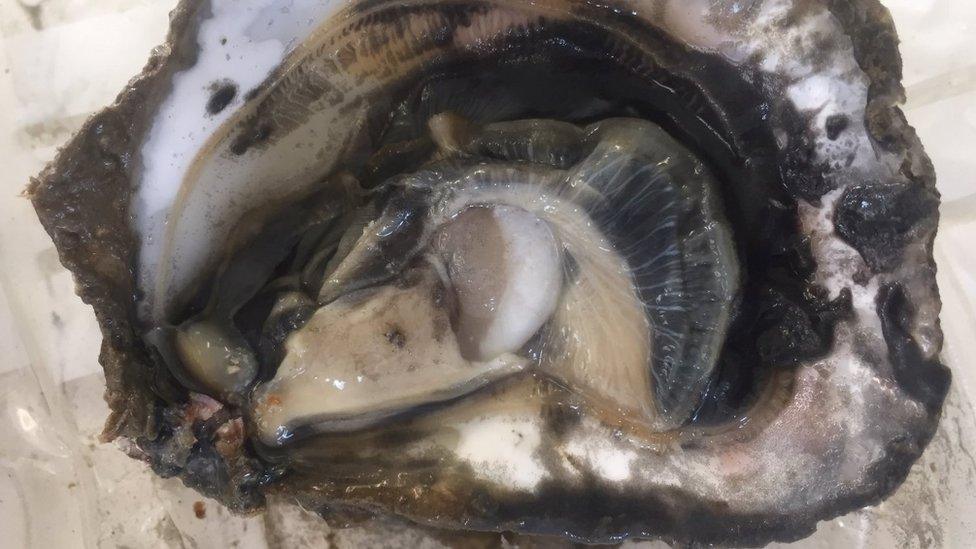
- Published18 July 2017

- Published30 May 2016

- Published26 December 2015
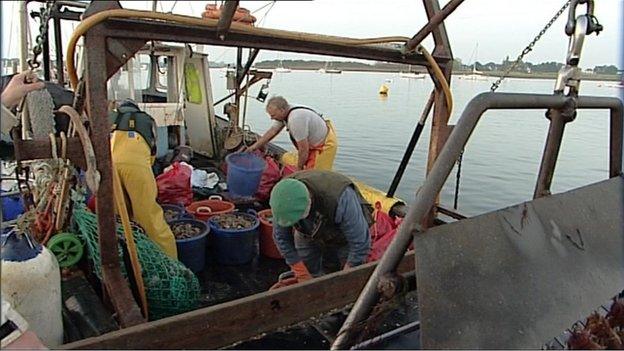
- Published11 November 2015

- Published11 October 2013
